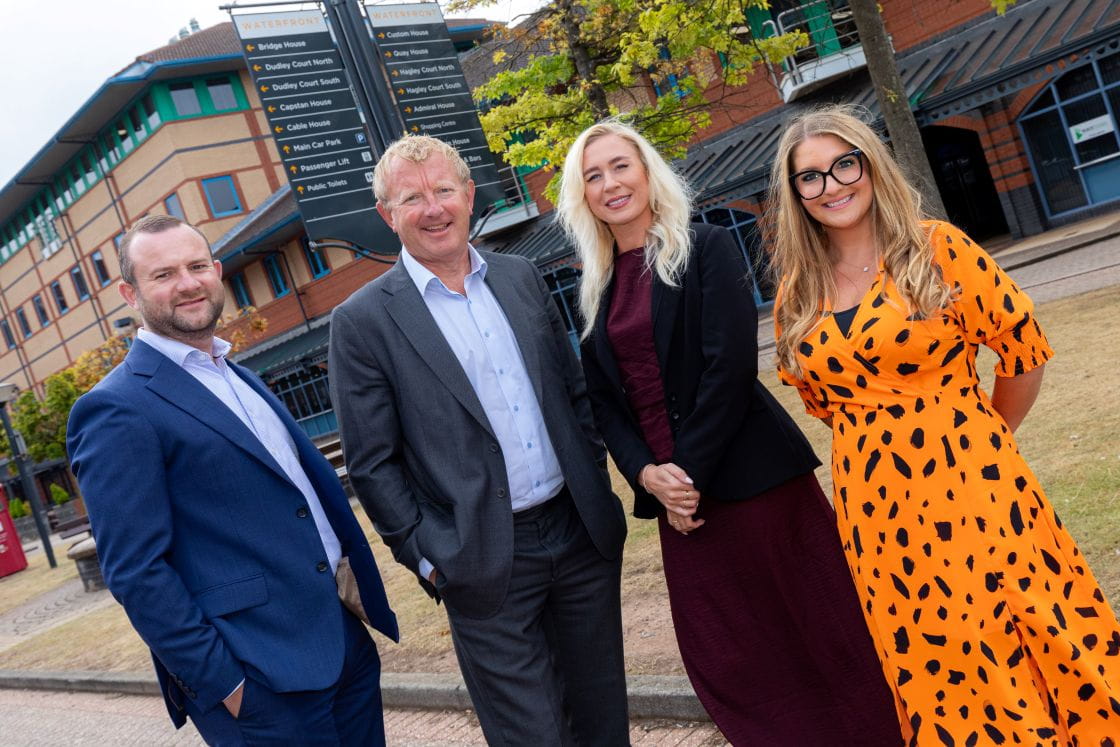Nine legal career lessons from a commercial property partner
1. Don’t dismiss property because you didn’t enjoy land law modules
People often think property law is boring and dry when they study it – but in practice it’s complex and interesting. The second seat of my training contract in property made me realise ‘this is for me’. I sat my first seat in litigation and some of the claims had been ongoing for months – even years. But in commercial property, I was able to see transactions through to completion far quicker. This suited me much better.
There’s a lot of fast-paced and high-value work in commercial property. People think corporate and banking law is the place to work on big deals, but commercial property is up there too. For most businesses, properties and leases are their biggest assets, so the work we do is fundamental. It’s a great area for aspiring technical lawyers, as there’s a lot of drafting and technicalities.

I’m very much a people person, and I love that property is so collaborative. I work with my clients and their professional teams, including their accountants and bank relationship managers. You get to know your clients well and often become a part of their long-term plans.
I find my work satisfying – no two days are ever the same. Helping a business to buy a property so they can grow is satisfying. And then helping people sell a business when they reach retirement is also rewarding.
2. Don’t be afraid to step out of your comfort zone
One day, my boss suggested I handle a sale of a huge trading estate which had been in the same family for generations. They had around 30 tenants and all their records were on paper. I’d never worked on anything of this scale before, but my boss believed I was up for the challenge.
It was a complex and emotion-filled case. There was a lot to unpick and organise. But just as crucially, it required a huge amount of sensitivity because of the family history and emotion associated with the estate.

At the end of that sale, I had a moment where I thought: ‘Wow, I know what I’m doing.’ It was my most rewarding case. Buying and selling large trading estates is now one of my specialisms.
I found that often the people around you have a greater belief in your abilities than you do. It’s so important to believe in yourself. I draw on this a lot as a manager and always encourage my team to stretch themselves.
3. Consider roles outside London
There’s a misconception that no high-value or complex legal work happens outside London. I’ve worked in Bristol, Birmingham, the Black Country and now Worcestershire and I’ve always done quality work. I often find myself on the other side of transactions to big international and London firms. Ultimately, a lot of clients want to instruct somebody who has local knowledge.
At mfg, we have lawyers who’ve come from top 50 firms and others who’ve worked here their whole career. There are huge benefits to that mix. I learn as much from the home-grown talent as they learn from me.

4. Pick up the phone
I lose count of how many times clients comment it’s refreshing that I actually phone them. The most common pitfall I see is solicitors using emails in cases where they should call. It’s something that was drummed into me as a trainee. It’s so much more efficient – a short phone call can save you from writing 20 emails.
It takes a lot of confidence to talk on the phone about legal matters, but clients value it. As a trainee I’d make notes before my calls, so I knew exactly what to say. I always worried what would happen if things went off script, but preparing helped. And the more I did it, the more confident I became. I still prepare before my calls now as a partner.
5. Don’t wait to be chased
There are a lot of things in property outside our control, but we can control our communications. This can reassure clients. Even if you don’t have a material update, it’s important to let the client know you’re waiting for things.

6. Be pragmatic
As a trainee, you're told to build commercial awareness – but that can feel like an abstract concept. I used to wonder if it just meant reading the news. That’s part of it, but for me, it’s about being pragmatic.
There might seem to be a technically ‘perfect’ legal solution, but if it’s going to take a lot of time and money, is it really the best option? Pragmatism is all about stepping back and looking at the bigger picture. I think that’s hard to do when you’re first starting out, but it does come with experience.
7. Strong teams make flexibility possible
 I work full-time hours condensed into four days so I can spend one day a week with my daughter – something I couldn’t do without the support of my team. We operate collaboratively, ensuring everyone is across each other’s cases so progress continues smoothly, even during absences. This approach also reassures our clients, who know that someone on the team will always be familiar with their file.
I work full-time hours condensed into four days so I can spend one day a week with my daughter – something I couldn’t do without the support of my team. We operate collaboratively, ensuring everyone is across each other’s cases so progress continues smoothly, even during absences. This approach also reassures our clients, who know that someone on the team will always be familiar with their file.
Flexibility is a key part of how we work. For example, I regularly step in to support my paralegal when she takes time out for her SQE studies. It’s important that everyone knows flexible working is an option and that we’re here to support each other.
I go into the office three days a week for team bonding and to provide meaningful supervision. Working regionally means I’m 10 minutes from the office, which makes it easy to stay connected while maintaining my work-life balance.
8. Partners must set the tone for wellbeing
If my junior colleagues see me taking a 30-minute break to reset, it sends the message that they can too. It’s great that people recognise the importance of wellbeing.
 I don’t check my phone or emails when I’m on annual leave so I can really switch off. Holidays are so important for wellbeing, so it’s essential to make sure you use them to recharge. I trust my team to take care of everything in my absence.
I don’t check my phone or emails when I’m on annual leave so I can really switch off. Holidays are so important for wellbeing, so it’s essential to make sure you use them to recharge. I trust my team to take care of everything in my absence.
9. You’ll know when you’re ready for partnership
I’ve been lucky to work with amazing role models since I first started in law. Seeing women as heads of departments and senior partners inspired me and made me believe I could do the same.
I always worried about how I would ‘know’ when I was ready for partnership – but when the time came, I knew. I found I was almost doing the role before I became a partner, so that helped me realise it was the right moment. It took a lot of hard work to get there, but a lot of it is about having the confidence to go for it.
I want to know more
Stay up to date with the latest residential and commercial property developments.
Browse our property resources, insights and practical support.